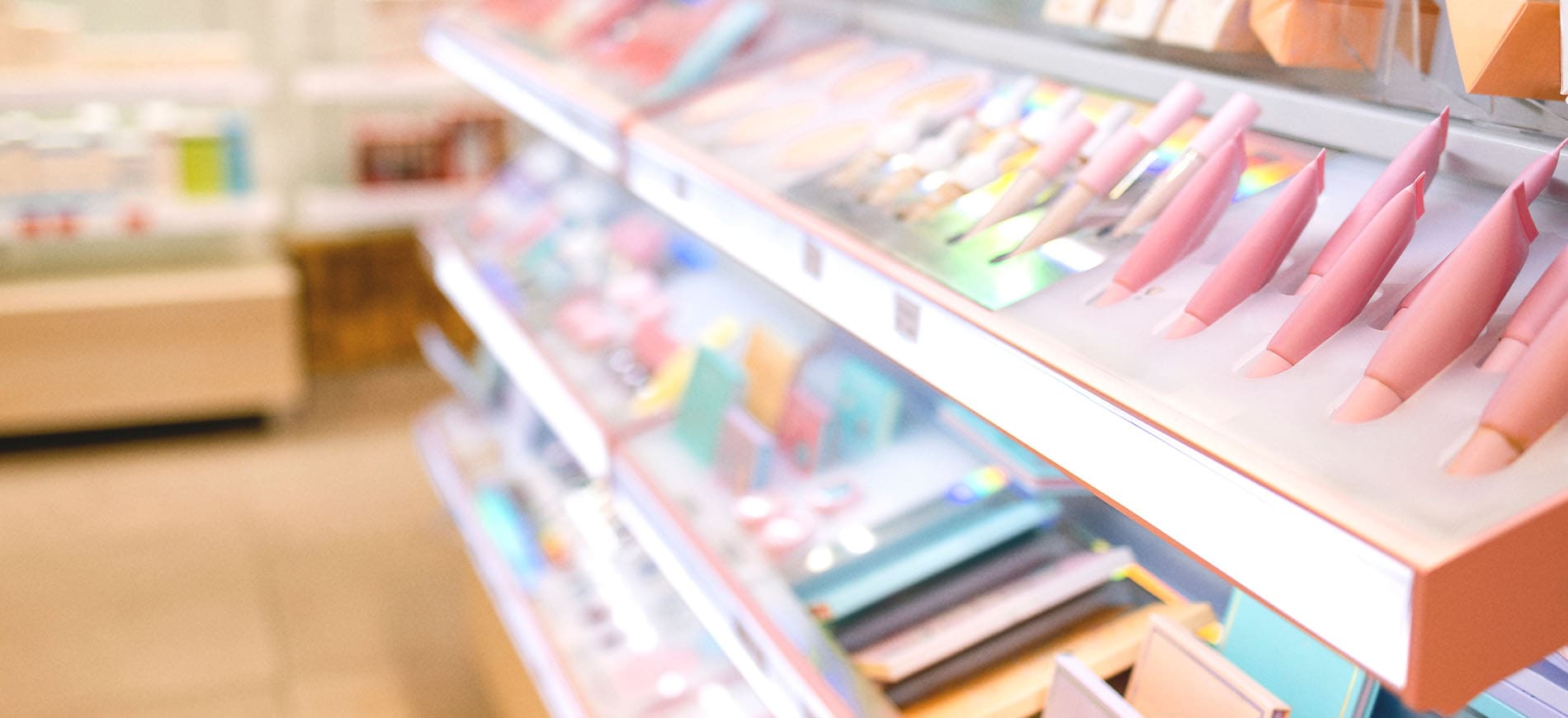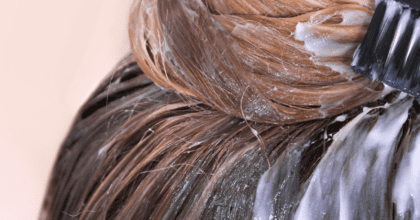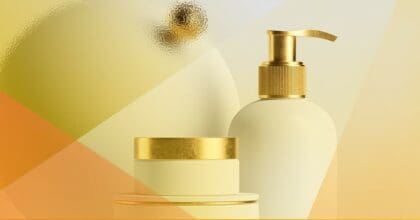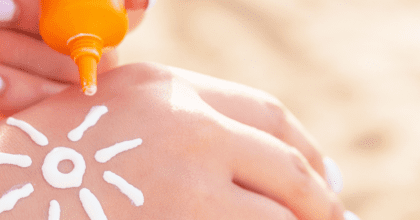The German cosmetics industry is changing and new trends are emerging. Discover the latest growth opportunities, innovations, forecasts and beauty industry trends in Germany.
Consumer spending on beauty and personal care products has changed dramatically since the pandemic. Value sales have declined as lockdowns caused event cancellations. The result: Less demand for an array of cosmetics products.
Now, post-pandemic, BPC industry growth is mainly maintained through high prices. Soaring inflation rates have prevented the category from returning to pre-pandemic levels. This has led to a change in both spending behaviour and beauty routines among German consumers. Good value for money has become a top priority, as half of German BPC shoppers would shop around if they had to cut back on beauty and personal care spending.
The Value of the German BPC Market
After a small, pandemic-induced dip in 2021, sales rebounded in 2022 with an estimated €18.5 billion retail sales of beauty and personal care products – and growth in this sector is set to continue, as is Mintel’s coverage of the German market with more reports, more coverage, and more insights.
With growth set to hit double digits, the German BPC market cannot be ignored and is well worth investing in. Learn how to position your brand at the forefront of the German beauty market with Mintel’s insight on how German consumers may differ from those elsewhere. How can you best address the German beauty consumer? Which purchase factors do Germans prioritise? And which products are the most appealing?
We’ve handpicked the four most prominent beauty industry trends in Germany. Read on and find out how you can capitalise on emerging trends and tap into innovative opportunities to future-proof your business.
German Consumers and the Cost of Living Crisis
Following the financial strain of the pandemic, inflation is now preventing the economy and consumers from recovering financially. This brings saving money and value driven purchases to the forefront of consumers’ minds. This may cause growth in the German cosmetics industry to flatten, however, it’s still possible to survive, and even thrive, during economically trying times. In fact, compared to other industries, the BPC category has proven more resilient to inflation as Germans are looking for small luxuries in the form of makeup or fragrances to treat themselves during the cost of living crisis when other luxuries seem too far out of reach — a trend that is likely to continue into 2023.
To cater to German consumers’ need to save money, brands must offer cost-effective options that don’t compromise on quality. In this light, private-label beauty products are thriving during the cost of living crisis, as they enjoy a good reputation in Germany, delivering affordable quality.
Growing Popularity of Online Retailers
The pandemic has had a dramatic impact on all industries, bringing about new trends in the German cosmetics industry and causing consumers’ behaviours and attitudes to shift.
During lockdowns, online shopping gained significant traction. Online shopping platforms offering fast delivery captured consumers’ attention while they were forced to stay at home for long periods. The convenience online retailers offer has outlasted COVID-19 lockdowns, and brands are advised to invest in expanding their online channels.
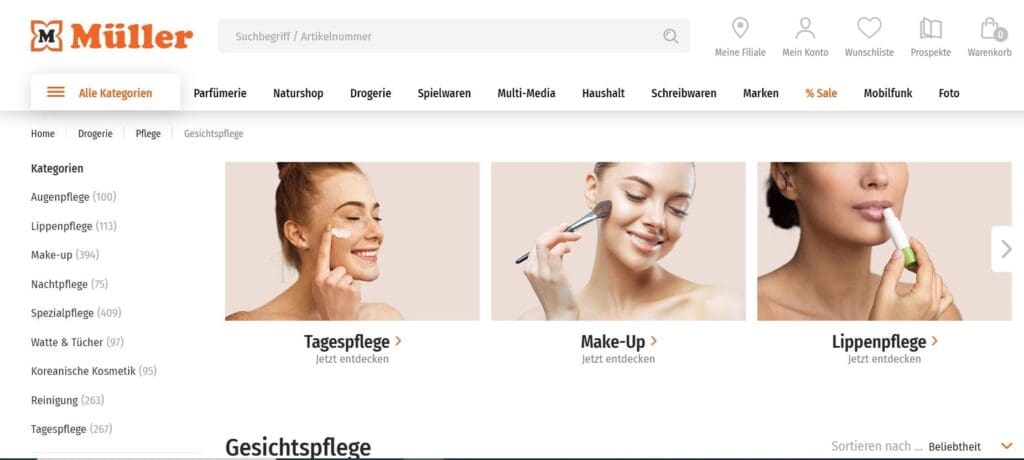
An example of a German online shopping platform for BPC products. Source: Müller Online Shop DE
Ethicality is Key: While many Germans appreciate the convenience of online shopping for beauty products, they are also becoming more aware of exploitative working conditions and the effect that delivery services have on climate change. As a result, the demand for transparency from retailers is growing. For 49% of German adults, ethical conditions are a key factor in choosing a retailer.
Less is more: Not only has the pandemic changed how Germans shop for their beauty products, but also how they approach their beauty routines. More people are working from home and have more flexible schedules, which gives them the freedom to include self-care routines throughout the day instead of limiting them to a set regime in the morning and/or evening.
A full face of makeup was made redundant during lockdowns. This trend has come to stay. Most beauty routines have been cut to essentials only, leading to a growing minimalistic trend that has stuck because minimalist beauty routines are also an effective way to cut back on spending.
German Consumers are Embracing Sustainability Beauty Products
German consumers are becoming more climate-conscious. With heightened awareness of their online purchases’ impact comes an expectation that brands will provide sustainable and ethical products that also meet their needs.
Communication is Key: It is crucial for brands and retailers to transparently communicate their sustainability efforts. Greenwashing is a no-go and is considered to be a serious issue, with 57% of Germans feeling that eco-friendly statements have become a marketing tactic that often turns out to be inauthentic. Brands must be clear in their messaging and ensure that their sustainable initiatives are backed up by tangible evidence, or risk losing their customers’ trust.
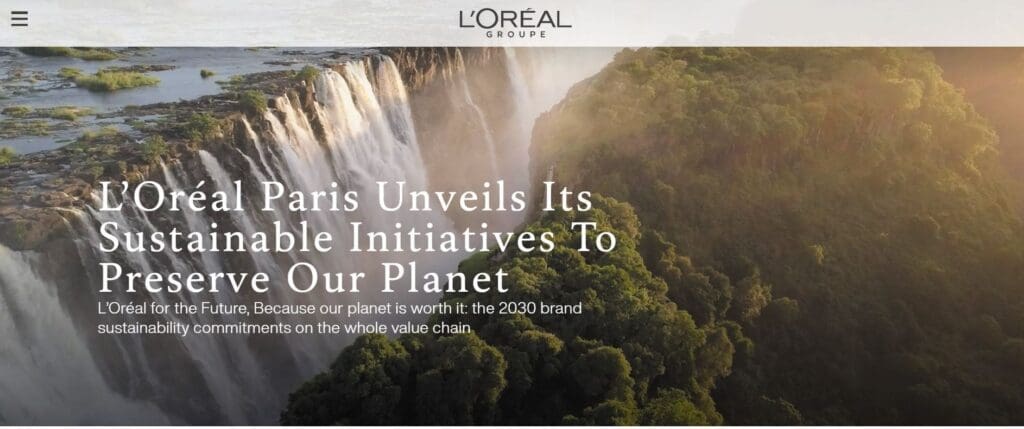
L’Oréal reveals it’s sustainability initiative with self-set goal to reach until 2030. Source: L’Oréal Groupe
Despite Germans’ concern about the environmental consequences of their actions, the cost of living crisis remains the key issue for consumers. Due to high inflation levels and financial worries, German shoppers are always on the lookout for bargains and ways to save money while still ensuring they’re buying eco-friendly products. Flexible or tiered pricing options can be a solution for beauty brands to balance the need for more sustainable alternatives and affordability.
Diversity is on the Rise
Most Germans feel well served by BPC brands, and because Germany is a fast-ageing society — 26.2% of Germans will be over the age of 65 in 2030 — age and body diversity are shoppers’ main priorities. Nevertheless, most products cater to a younger consumer base, so there is an untapped opportunity when it comes to the silver economy.
While most consumers in Germany are happy with the array of options available to them, there is demand for more proof of diversity and inclusivity credentials. Similarly, to sustainability claims, consumers often feel like brands’ diversity campaigns are inauthentic: 42% of Germans want companies to give proof of their products’ inclusivity.
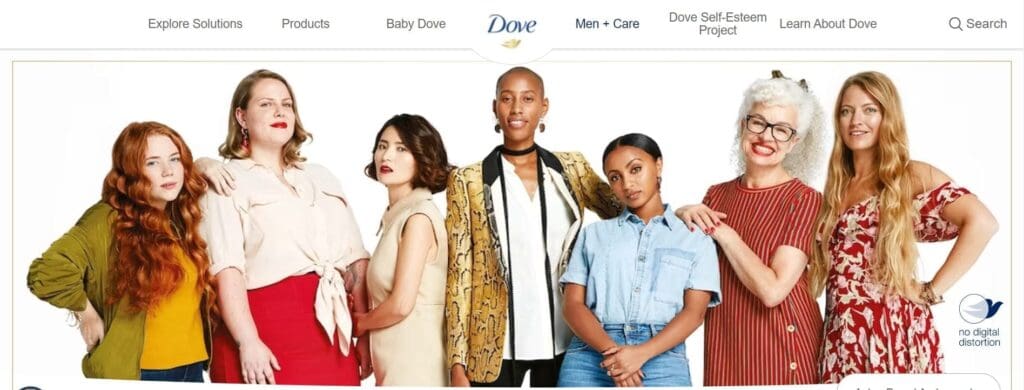
The ‘Dove Real Beauty Pledge’ promoting beauty that is accessible to all women. Source: Dove UK
Women and those aged 16-to-24, in particular, are interested in seeing more diversity across the board. While the focus remains on age and body types/sizes, darker skin and/or curly hair are more prevalent among a younger target group. This makes younger consumers more likely to let brands’ diversity credentials sway their purchase decisions.
Affordability, however, remains the baseline tenet of diversity, as it is for many other areas, e.g. sustainability. Brands looking to succeed in the German cosmetics industry must combine diversity with affordability.
Don’t miss out on an exclusive 10% discount on all market research reports when you order direct on Mintel Store and use the promo code ‘SPOTLIGHT’ at checkout!
How Can Your Business Respond to Consumer Trends in Beauty?
Despite inflationary prices, the German cosmetics industry is an ever-growing market with plenty of opportunities for brands to tap into. To stay competitive and remain attractive to German shoppers, BPC brands must consider consumer needs and preferences. These include affordability, good value for money, sustainable alternatives, and more authentic diversity initiatives. Going forward, it will be crucial for brands to understand what consumers want and offer cost-effective solutions that still deliver quality.
For a more thorough understanding of the German beauty consumer, their needs and affordability priorities, Mintel provides cutting edge market research for you to use as a tool to successfully navigate the German BPC market and make the most of a variety of opportunities to appeal to German consumers. Mintel Germany Reports – The smartest way to understand German consumer markets.



















